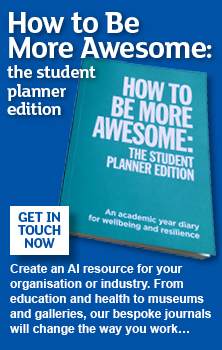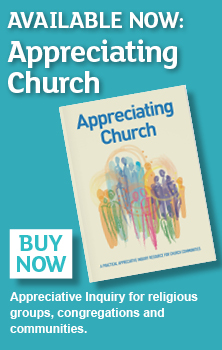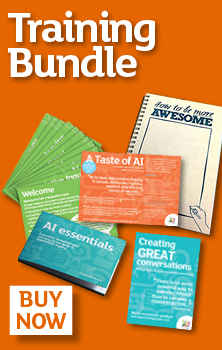- Home
- About us
- What we do
- Who we work with
- News
- Resources
- Shop
- Appreciating Health and Care
- Appreciating Health and Care: AI in practice eBook:
- Appreciating Health and Care interactive eBook:
- A Taste of AI
- Training Bundle 2
- AI Beginners Bundle
- Journaling Bundle
- More than Welcome cards
- Three Good Things journal
- Reflections Journal
- Number 1 Journal
- Awesome Journal 2
- Taste of AI cards 2.0
- Appreciating Church
- How to be More Awesome – a practical journey
- Creating Great Conversations cards
- Food for Thought – a journal for appreciating daily life
- AI essentials cards
- AI essentials eBook
- Appreciating Church Pack
- Get in touch
- hello@appreciatingpeople.co.uk
- 01309 671 584
Staff wellbeing and resilience
Workplace ill-health poses a significant cost to us all, but the cost to individual businesses is far more critical. The CIPD’s latest report on workplace health, Growing the health and well-being agenda: From first steps to full potential, show that the average cost of absence now stands at £554 per employee per year. It also highlights that nearly two thirds – 61% – of employers are reactive in their approach to wellbeing, with 38% of employees finding themselves under excessive pressure at work at least once a week.
Around 10 million working days are lost in the UK each year due to stress, anxiety, or depression, with the economy taking a £57 billion hit.
Wellbeing and resilience is increasingly recognised as an essential factor in the success and support of a happy workplace. Using an AI-based approach to support and develop your organisation, team, or group automatically enhances emotional intelligence, social capital, and wellbeing. We refer to the nef Five ways to wellbeing – and using AI promotes four of the five suggestions.
International studies show that negative stress and personal imbalance contribute to:
- 60% of employee absences
- More than half of the 550,000,000 workdays lost annually in the USA because of absenteeism.
- Impaired productivity, with 92% of staff saying personal issues spill over into their work performance
Feedback from our programmes shows that staff feel their wellbeing and resilience has deepened while they have worked with us. Appreciating People has developed, designed, and delivered a number of staff resilience support programme for clients – North West Ambulance Service have used AI training to foster resilience and Quality Improvement (QI). You can read the case study about our work with NHS Heywood, Middleton and Rochdale here.

Some HR thinkers believe that resilience is much more important for an organisation’s wellbeing than traditionally significant qualities, including intelligence quotient (IQ) and emotional intelligence (EQ).
When implementing the programme in your workplace, we typically include the Gallup Strengths Finder and aspects of Positive Psychology, as well as offering short presentations – perfect for lunchtime staff meetings. The Gallup StrengthsFinder is the culmination of more than 50 years of work by psychologist Dr. Donald O. Clifton, and helps people pinpoint their strengths and excel. As a result, they’re six times as likely to be engaged in their jobs, are more productive, and are more than three times as likely to say they have an excellent quality of life.
If you’re interested in using AI in a systematic way, to build staff resilience, we can work alongside a core group from your organisation to make sure that our programme meets your needs and requirements. That group will receive basic AI training, help co-design the programme, and continue its practice once our work is finished.
If you’d like to speak to us about staff wellbeing and resilience, please get in touch. For more information you can read our King George’s Hostel case study, or find out about our NHS work. You can also buy one of our Appreciative journals, Food for Thought or How to be More Awesome here. These include practical exercises, information on nef’s ‘Five Ways to Wellbeing’, and Action For Happiness’ GREAT DREAM. Both journals are designed to support and enhance feelings of personal wellbeing and resilience.
In the meantime, here are some of the lovely things that our participants have said about us:
‘I wouldn’t normally say this – the impact of the resilience programme has been phenomenal’
‘It’s been valuable to take time to consider one’s development and future plans. I have particularly enjoyed the positive nature of the course i.e. focusing on strengths rather than weaknesses.’
‘What you have achieved in a few weeks with these residents is remarkable and would take us much longer to achieve – you have made a difference.’




